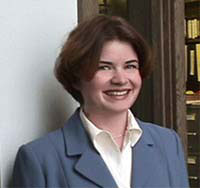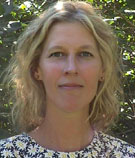
In cooperation with the "Dolce" project directed by:
Dr. Keith Miller, University of Illinois at Springfield
Dr. Tracy Camp, Colorado School of Mines
Dr. Laurie Smith King, College of the Holy Cross
Dr. Deborah Johnson, University of Virginia
Dr. Barbara Moskal (Project Evaluator), Colorado School of Mines
 Professor
Chuck Huff is Professor of Psychology, at
St. Olaf College. He teaches classes in social psychology, social
conflict, social and ethical issues in computing, moral reasoning, and
a "great books" introduction to psychology. He has published research
on moral reasoning, computing and education, gender and computing, and
social aspects of electronic interaction. Professor Huff is the Principal
Investigator on this project.
Professor
Chuck Huff is Professor of Psychology, at
St. Olaf College. He teaches classes in social psychology, social
conflict, social and ethical issues in computing, moral reasoning, and
a "great books" introduction to psychology. He has published research
on moral reasoning, computing and education, gender and computing, and
social aspects of electronic interaction. Professor Huff is the Principal
Investigator on this project.
William J. Frey is a Professor of Philosophy at the  University
of Puerto Rico at Mayagüez. He is the associate director of the Center
for Philosophy in its Interdisciplinary Function, an ethics center affiliated
with UPRM. For the last twelve years he has taught courses in business
and engineering ethics and environmental ethics at UPRM.
University
of Puerto Rico at Mayagüez. He is the associate director of the Center
for Philosophy in its Interdisciplinary Function, an ethics center affiliated
with UPRM. For the last twelve years he has taught courses in business
and engineering ethics and environmental ethics at UPRM.
 Signe
Land Levine graduated from St. Olaf College in 1993 with a Paracollege
concentration in Creative Writing. In 1996, she earned an M.F.A. in Writing
from the University if Minnesota. Signe has taught writing classes at
the University of Minnesota and at St. Olaf College. She is currently
teaching a writing course and coordinating the tutoring program at St.
Olaf. Signe lives in Northfield with her husband and 3 year-old son. In
addition to writing and learning computer programming, Signe enjoys Yoga,
web surfing, and alternative rock.
Signe
Land Levine graduated from St. Olaf College in 1993 with a Paracollege
concentration in Creative Writing. In 1996, she earned an M.F.A. in Writing
from the University if Minnesota. Signe has taught writing classes at
the University of Minnesota and at St. Olaf College. She is currently
teaching a writing course and coordinating the tutoring program at St.
Olaf. Signe lives in Northfield with her husband and 3 year-old son. In
addition to writing and learning computer programming, Signe enjoys Yoga,
web surfing, and alternative rock.
Christina Harmon is a student at St. Olaf College, majoring
in Psychology with a concentration in Computer Science. She is especially interested in the social and ethical
implications of computing, and hopes to work in this area. Christina will
graduate in the spring of 2001, and hopes to take a year away from school
to join either AmeriCorps or the Lutheran Volunteer Corps, before entering
grad school. In her spare time, she enjoys playing her piccolo in the
St. Olaf Band.
Computer Science. She is especially interested in the social and ethical
implications of computing, and hopes to work in this area. Christina will
graduate in the spring of 2001, and hopes to take a year away from school
to join either AmeriCorps or the Lutheran Volunteer Corps, before entering
grad school. In her spare time, she enjoys playing her piccolo in the
St. Olaf Band.
Zachary Schendel recently completed a double major in psychology and music at St. Olaf while also participating in the St. Olaf Orchestra and Band. He will be attending the Ohio State University next year doing research in the Cognitive/Experimental Psychology program with an emphasis on Music Cognition. He also plans to continue performing on his French horn.
C. Nathan DeWall is a student at St. Olaf College where he is expected
to graduate in 2002. He is majoring in psychology and is particularly interested in social psychology. Nathan has worked
on a variety of clinical and social psychological research projects on
topics such as the chivalry script and stereotypes about women, perceptions
of group homogeneity, moral exemplars in computing, social and ethical
issues in computing, and increased intellectual functioning in rapid-cycling
bipolar individuals. He is also a teaching assistant to Professor Chuck
Huff’s "great books" introduction to psychology course.
Nathan plans on attending graduate school directly following his graduation
from St. Olaf where he hopes to earn a Ph. D. in social psychology. In
his spare time, Nathan also sings baritone in the St. Olaf Choir.
and is particularly interested in social psychology. Nathan has worked
on a variety of clinical and social psychological research projects on
topics such as the chivalry script and stereotypes about women, perceptions
of group homogeneity, moral exemplars in computing, social and ethical
issues in computing, and increased intellectual functioning in rapid-cycling
bipolar individuals. He is also a teaching assistant to Professor Chuck
Huff’s "great books" introduction to psychology course.
Nathan plans on attending graduate school directly following his graduation
from St. Olaf where he hopes to earn a Ph. D. in social psychology. In
his spare time, Nathan also sings baritone in the St. Olaf Choir.
Mara Sedlins is a Psychology and Math major at St. Olaf College, where
she will be graduating in 2003. In addition to her involvement in the
ComputingCases website, she has  assisted
Prof. Bonnie Sherman with research on number forms (involving mental imagery
and cognition) and plans to conduct research with Prof. Donna McMillan
in the fall of 2002 relating Terror Management Theory (Goldenberg, J.
L., Pyszczynski, T., Greenberg, J., & Solomon, S.) to nature and social
connection. She plans to attend graduate school in research psychology.
Areas of interest include social psychology, existential psychology, and
interdisciplinary research. Playing violin in the St. Olaf Orchestra has
also been an important part of Mara’s college experience.
assisted
Prof. Bonnie Sherman with research on number forms (involving mental imagery
and cognition) and plans to conduct research with Prof. Donna McMillan
in the fall of 2002 relating Terror Management Theory (Goldenberg, J.
L., Pyszczynski, T., Greenberg, J., & Solomon, S.) to nature and social
connection. She plans to attend graduate school in research psychology.
Areas of interest include social psychology, existential psychology, and
interdisciplinary research. Playing violin in the St. Olaf Orchestra has
also been an important part of Mara’s college experience.
Goldenberg, J. L., Pyszczynski, T., Greenberg, J., & Solomon, S. (2000). Fleeing the body: A terror management perspective on the problem of human corporeality. Personality and Social Psychology Review, 4, 3, 200-218.

Barb Hernke is assisting Professor Huff with the logistics ofthe overall project. She has over 10 years experience in corporate project management that typically included a technology component. She is currently pursuing an Education Doctorate and is interested in cultures, leadership, and ethics in organizations, and trends of the workforce. Barb's leisure time is filled with outdoor activities, technology, and music.
This project is funded by grants from the National Science Foundation
 |
DUE-9972280 DUE-9980768 |
With special thanks to our advisors on the project:
Computer Science:
-
Batya Friedman, U of Washington, Seattle
-
Don Gotterbarn, East Tennessee State
-
Tom Jewett, California State, Long Beach
-
Dianne Martin George Washington
-
Keith Miller, University of Illinois, Springfield
-
Simon Rogerson, DeMontfort University, UK
-
Elaine Weltz, Seattle Pacific University
Industry:
-
Bruce Jawer, IBM Rochester
-
Debra Winter, Anderson Consulting
Ethics:
-
Terry Bynum, Connecticut State
-
Deborah Johnson, University of Virginia
-
Helen Nissenbaum, Princeton University
-
Caroline Whitbeck, Case Western Reserve
Social Science
-
Ron Anderson, University of Minnesota
-
Tom Finholt, University of Michigan
-
Rob Kling, University of Indiana
-
Suzie Weisband, University of Arizona